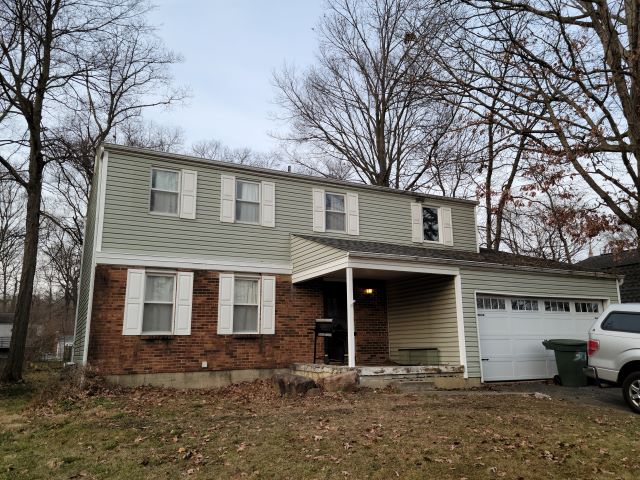Sell an Inherited House in Columbus Ohio – The How To’s!
When a loved one passes away and leaves behind real property in Ohio, the steps of selling inherited house can seem overwhelming. This white paper will guide you through each step of the process, making it easier to understand and manage. By following these steps, you can navigate the probate process and sell the property efficiently.
Understanding Probate in Ohio
What is Probate?
Probate is a legal process that occurs after someone dies. It involves proving the validity of the deceased’s will, if one exists, and distributing their assets according to the will or state law if no will is present. Real property often needs to go through probate to be legally transferred to heirs or sold. If a living trust exists all the assets will be distributed according to the trust, and by pass probate in most cases.
Why Probate is Necessary
Probate ensures that the deceased person’s debts and taxes are paid before the remaining assets are distributed. It provides a legal framework to resolve any disputes over the estate.
Steps to Selling Inherited House
1. Confirm Ownership
The first step is to confirm that the deceased owned the property. Locate the deed or other documents that prove ownership.
2. Secure the Property
Secure the property to prevent unauthorized access or damage. Change the locks and ensure the house is safe.
3. Locate the Will
If the deceased had a will, locate the original document. This will guide the distribution of the property.
4. File for Probate
If probate is necessary, file a probate case with the local Ohio probate court. This step is essential for transferring ownership or selling the property.
5. Appoint an Executor or Administrator
The court will appoint an executor if there is a will. If there is no will, the court will appoint an administrator. This person will manage the estate and handle the sale of the property.
6. Notify Interested Parties
Notify all beneficiaries, heirs, and creditors about the probate proceedings. This step ensures transparency and allows for any objections to be raised.
7. Inventory the Estate
Prepare an inventory of the deceased’s assets, including the real property. This inventory must be submitted to the probate court.
8. Value the Property
Get a professional appraisal to determine the fair market value of the property. This will help in setting a sale price.
9. Settle Debts and Taxes
Use estate funds to pay any outstanding debts and taxes. This is a crucial step before distributing or selling any assets.
10. Obtain Court Approval
In some cases, you may need court approval to sell the property. File a petition with the probate court to get the necessary permission.
11. Market the Property
List the property for sale. Work with a real estate agent experienced in probate sales to reach potential buyers.
12. Accept an Offer
Once you receive an offer, the executor or administrator can accept it. Ensure the offer meets or exceeds the fair market value determined earlier.
13. Close the Sale
Complete the sale by signing the necessary documents and transferring the title to the buyer. Record the deed with the county recorder’s office.
14. Distribute Proceeds
After the sale, distribute the proceeds according to the will or state law if there is no will. This includes paying any remaining debts and distributing the rest to the beneficiaries.
15. Close the Estate
Once all assets are distributed and debts paid, file a final accounting with the probate court and petition to close the estate. The court will then issue an order closing the estate.
Additional Considerations
Legal Assistance
Navigating the probate process can be complex. Consider hiring a probate attorney to ensure all legal requirements are met and to avoid potential pitfalls in the steps of selling inherited house.
Communication
Maintain open communication with all beneficiaries and heirs throughout the process. Transparency helps prevent disputes and ensures everyone is informed.
Timing
The probate process can take several months to over a year, depending on the complexity of the estate. Plan accordingly and be patient as you navigate through the steps.
At Roger Sells Ohio House with Coldwell Banker Realty, we understand how difficult and overwhelming the probate process can be after losing a loved one. During this challenging time, the last thing you need is added stress from managing the sale of an inherited house. That’s why we’ve established strong relationships with a network of trusted vendors who specialize in simplifying the probate process.
Our dedicated team is here to provide compassionate support and professional guidance every step of the way. We work closely with experienced attorneys, appraisers, cleaners, and contractors who understand the intricacies of probate sales. These professionals are committed to handling all the necessary tasks, from securing the property and completing necessary repairs to navigating legal requirements and ensuring a smooth transaction.
By partnering with experts who share our commitment to making the probate process as easy as possible, we can help you achieve the best outcome for your inherited property. Our goal is to alleviate your burden, provide peace of mind, and offer the support you need during this difficult time.
Let Roger Sells Ohio House with Coldwell Banker Realty be your trusted guide through the probate process, ensuring a seamless and stress-free experience for you and your family. We truly care about making this process easier for you, and we’re here to help every step of the way.
To Claim Your Free List of Roger Sells Ohio House – Probate Vendors CLICK Here!
Conclusion
Selling an inherited house in Ohio involves several steps, from confirming ownership to closing the estate. Understanding and following these steps can help you navigate the probate process smoothly. By staying organized and seeking professional guidance when necessary, you can efficiently manage the sale of the property and fulfill your responsibilities as an executor or heir.


 Facebook
Facebook
 X
X
 Pinterest
Pinterest
 Copy Link
Copy Link
